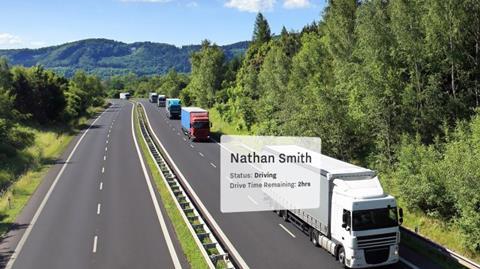
Artificial intelligence [AI] will be a major focus for fleet operators in the years ahead, according to technology specialist Samsara.
The company is best known for its tachograph solution, available as part of an all-in-one fleet management platform.
However, speaking to motortransport.co.uk at Samsara’s newly-opened offices in central London, senior director of business operations Nirav Patel said AI - which features computer systems able to perform tasks that normally require human intelligence, such as visual perception, speech recognition, decision-making and translation – was technology it was now increasingly interested in.
“AI is a big area of focus for us and we’re investing quite a bit in developing products incorporating it," he said. “What’s super interesting about where we are right now is that there are three trends that are coming together at the same time. They’ll make a big difference to road transport.
“Firstly, sensor technology has become super powerful. Look at the mobile phone. The technology is only accelerating. So you’re getting more powerful yet smaller sensors.
"The second thing is data transmission, like streaming video, is becoming much more powerful. And thirdly computing power, artificial intelligence and machine vision is becoming incredibly powerful.”
Patel said the transport industry had been slow to adopt concepts like machine vision, which allows companies to use imaging-based analysis for applications such as automatic inspection, process control and robot guidance.
“We’re only getting started across all three of these trends,” he said. “All the industries we serve – manufacturing, logistics, haulage, construction, field services – have lots of vehicles. They form the backbone of our economy and they haven’t really benefited from technology in the same way that other industries have. So the opportunity to do things like collect and analyse data is immense.”
Current AI applications on products are “the tip of the iceberg” in terms of what is possible, Patel continued.
“But one recent example of what we’ve done is our dash camera product which incorporates artificial intelligence to make the fleet safer. So we have computer vision on the camera that is basically learning street signs. We’re now able to tell our customers that drivers are not stopping at stop signs. It’s a very basic thing but then otherwise you wouldn’t really know.
"So now a fleet manager can actually coach drivers and tell them stopping at stop signs is very important – if you’re transporting hazardous material or you're driving a very large lorry for example. So if you’re not stopping at stop signs we need to have a coaching conversation. That makes a very big difference.
"But it also allows you to reward drivers for doing well. Drivers who are consistently displaying the right behaviour can get recognised."
Read more
- Samsara opens London headquarters
- New ‘live tacho’ tool gets seal of approval from operators
- FTA: ‘Bigger disruptors than Brexit are coming and you need to be ready…’
Patel revealed that the three key areas of AI that Samsara is now focusing on are sustainability, efficiency and safety.
"Safety to know if you’re going past a stop sign or not is just the first step," he explained. "You can have an artificial intelligence interface that will tell you if a driver is distracted, so if he’s on a mobile phone or drowsy you can offer coaching. That’s a great added innovation that will make fleets a lot safer, it will make drivers safer – it will kind of make the world safer.
"But we can extend applications of AI machine learning to other data sets we have. We have rich data on fuel consumption, we have rich data on route efficiency, These are all areas where there’s a lot of opportunity for AI."
Patel also commented on recent claims that AI and other technology installed in cabs risked breaching GDPR and health and safety guidelines.
One recent case has seen Biffa drivers threaten strike action over CCTV cameras that they claim keep them under constant surveillance.
“Nobody cares more about safe driving than drivers,” he argued. “We talk to drivers and are transparent with them and talk about how this technology helps them and how we’re protecting their rights. We have a whole set of privacy controls so we capture very little data. We have clear access permission. When drivers have full confidence in us they’re very amenable to it.
"This is an operations industry where businesses are very pragmatic. If you can show a haulier that you can save them money they'll talk to us. You save money because you have a safer fleet, you burn less fuel and you have more efficient routes.”












![WF_AI_Assistant_image (2)[80782]](https://d2cohhpa0jt4tw.cloudfront.net/Pictures/100x67/4/9/9/19499_wf_ai_assistant_image280782_771269.jpg)
